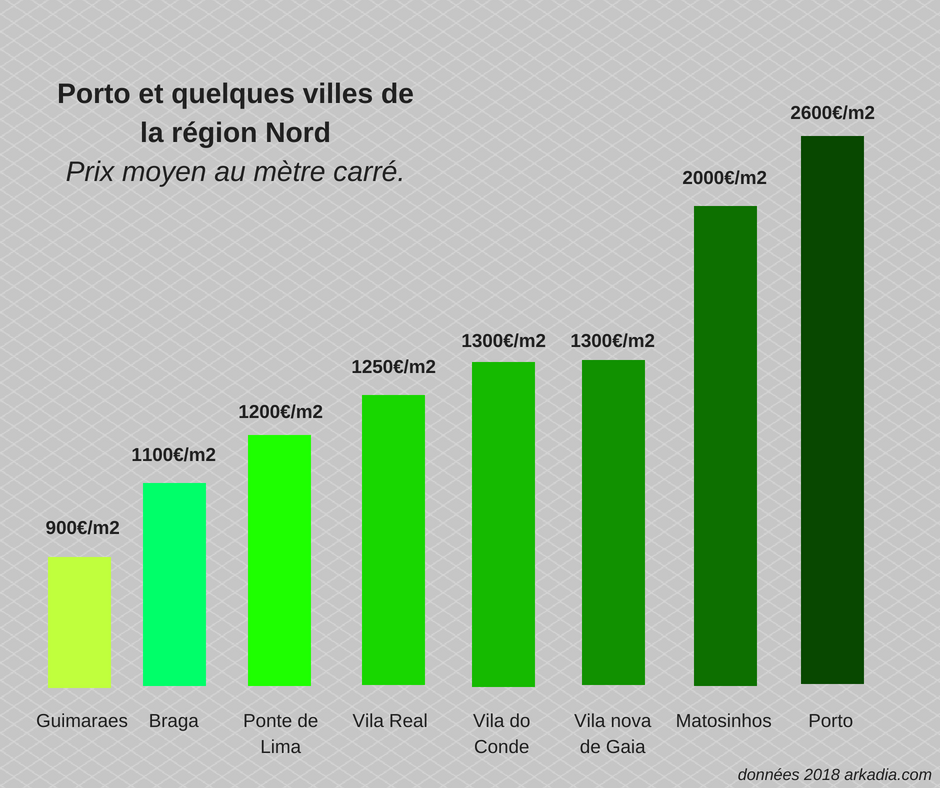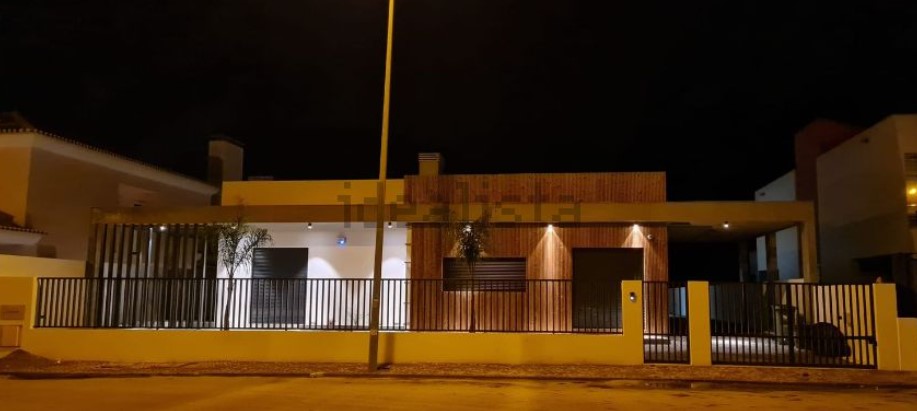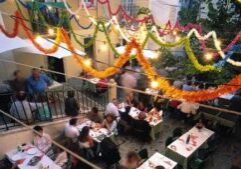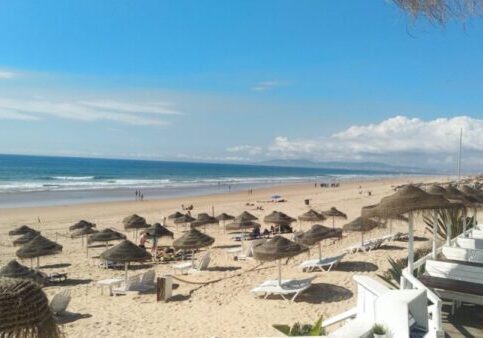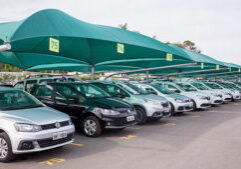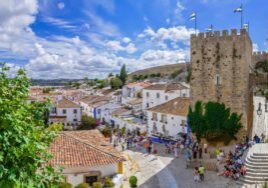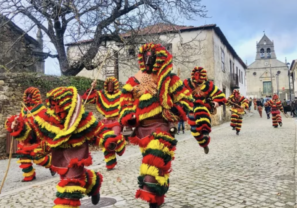Why choose to live in northern Portugal?
![]()
When we talk about tourism or living in Portugal, we often talk about the Lisbon and Algarve regions. However, Portugal, although a “small” country in terms of surface area, includes many other regions with undeniable assets. These include the Silver Coast, discussed inone of my previous articles, the Alentejo, which I’ll tell you about in a later article, and the northern region, which includes the great city of Porto, which I like to call “Lisbon’s little sister”, and which I’ll tell you about today. Portugal’s northern region may be more discreet and secretive than the others, but it’s nonetheless very interesting to discover and shouldn’t be overlooked in your options for a future place to live in Portugal. Why live in northern Portugal? This article will attempt to outline the main advantages.

I. Northern Portugal: what you need to know.
1) The northern region: its geography
Without going into detail about municipalities, towns, sub-regions, etc., here’s how Portugal’s northern region is structured. It borders Spain to the north and east, and the Atlantic Ocean to the west. It is made up of 5 districts: Viana do Castelo – Braga – Porto – Vila Real – Bragança. These districts are part of three large zones:
- The Minho (pronounced “migno”), including the cities of Braga, Viana do Castelo, Guimarães, Ponte de Lima, Barcelos, Esposende..
- The Douro littoral, including Porto, Vila do conde, Amarante, Matosinhos ..
- Trás os montes and Alto Douro including Vila Real, Chaves, Bragança, Mirandela ..
In the streets of the “capital” of the North: Porto.
As you’ve seen above, Portugal’s northern region is made up of numerous towns whose names are likely to leave you speechless, given their importance in Portugal’s history. In addition to these towns, the region is also full of small, typical villages with deep-rooted traditions, as we’ll see later in this article. Last but not least, the northern region of Portugal is also characterized by the presence of many luso descendants who often return in the summer, and more particularly in August, to reunite with their families.
Northern Portugal is shown here in the blue square.
2) The northern region: its weather
I know, one of the reasons you move to Portugal is often the climate. It’s true that many of you dream of “nice, warm” weather all year round. It’s normal, you’re desperate for the warmth and sunshine that the media and others are always harping on about Portugal.
So now I have to tell you something in all transparency… Yes, living in the northern region of Portugal means a wetter and colder climate than in the other regions of this small Iberian country. Below, you’ll find a comparison of the cities of Porto in the north, Lisbon in the “center-south” and finally Faro in the south of Portugal. Temperatures are clearly cooler in the north.
Temperature comparison between the cities of Porto, Lisbon and Faro. Source: www.partir.com
But let’s put things into perspective! Even if the northern region is less clement than other parts of Portugal in terms of weather, it’s still much more pleasant than France. Portugal’s northern region isn’t Brittany either!(Please, dear Bretons, don’t hold it against me!). What’s more, despite the somewhat cool winters, it’s also worth noting that inland northern Portugal is hotter in summer than the Algarve or Lisbon. Just a few days ago, a heat peak of 50 degrees was recorded in the town of Mirandela! Okay, so it’s too hot, but that’s just to show you the differences that can exist.
3) The northern region: its road, rail and airport infrastructures…
When moving to a foreign country, it’s very important to choose a city with good accessibility. By “accessibility”, I mean ease of access to the city in question, and ease of getting around anywhere from that city. Why is this so important? I can think of two main reasons:
- one, for discovering the country itself: other regions, Portuguese islands, Spanish neighbors…
- the other, for the ease of returning regularly to your home country to see your loved ones, or when you’re feeling a little bit “blue”(yes, “expat life” can sometimes be a little bit “blue“)
In 2018, Portugal ranked 13th (out of 137 countries) in terms of “Quality of global infrastructure” (source: Global Competitiveness Report 2017-2018). The country’s road and motorway networks are well developed, and the north is no exception. The same is true of the rail network(see map below), which provides regular links between northern cities, as well as with the south of the country.
Map of Portugal’s northern rail network.
There’s also a well-developed, inexpensive bus network(see map below). And let’s not forget Porto’s Francisco Sá-Carneiro international airport, which offers a wide choice of destinations and hosts numerous airlines, including low-cost carriers.
Map of the bus network in northern Portugal.
II. The Nord region: 5 key assets
1) Living in northern Portugal means more attractive property prices than in other regions
As on the Silver Coast, which I mentioned in a previous article, property prices in northern Portugal will be more attractive than in the Lisbon and Algarve regions. Of course, in Porto itself, the price per m2 remains relatively high, averaging around €2,600/m2. This is higher than in a major Algarve city like Faro, where the average is €2,200/m2, but still much less expensive than the average per m2 in Lisbon, which is now flirting with €3,700. What’s more, the northern region isn’t just about Porto: the other major cities in the surrounding area have quite attractive prices per square meter, unlike other regions of Portugal. In the table below, you’ll find a non-exhaustive list of some of the major cities in northern Portugal with their real estate prices per m2(these prices are averages and obviously vary according to the type of property, its condition, its location, its surface area…)
Average price per square meter for some towns in northern Portugal.
2) Living in northern Portugal means a lower cost of living than in other regions
When it comes to the cost of living, we often hear that it’s lower in Portugal than in other European countries. While electricity, gasoline and telephone subscriptions are at least as expensive as in France, when it comes to everyday consumer goods (excluding imported products, of course), there’s a real difference of between -20% and -30% compared with France. This price difference can also be seen within the country itself. The Algarve and Lisbon regions offer a higher cost of living than those in the center or north of the country. In the north of Portugal, for example, restaurants, food, activities, furniture and clothing are less expensive than in other parts of the country. This situation can be partly explained by the fact that this is a very agricultural region, so meat, fruit, vegetables, etc. are all available and inexpensive. The same is true of the many furniture, textile and leather factories in the region, offering quality products at competitive prices.
3) Living in northern Portugal means a return to authenticity
Northern Portugal is a region with deep-rooted traditions. This is reflected in a large number of popular festivals, some of the biggest in the country, such as Mirandela, São João in Porto, Viana do Castelo, Ponte de Lima…(I talk about some of these festivals in my article on popular festivals in Portugal, the link to which ishere)
On the other hand, the north of Portugal includes many small villages where many traditions still persist. For my part, I greatly appreciate the authenticity of these villages. In many villages in northern Portugal, for example, you can still see :
- washhouses, where a few women still wash some of their clothes using large rectangular soaps,
- bread, fish and meatdeliverymen, who criss-cross the villages, honking their horns to signal their arrival,
- the fountains where people fetch drinking water in large bottles for the week,
- village squares with benches where men gather to chat in the shade of trees in summer,
- the presence of numerous trades within the village itself: you’ll always find a seamstress, a carpenter, a shoemaker, a hairdresser… who do each other favors when they need them,
- a well-establishedbarter system. Just the other day, the people I was staying with, in exchange for a pig they’d been given to make “leitão assado”(barbecued pig), gave me home-made cold meats and “folar de carne”(meat loaf).
- Etc.
Water source in the village.
4) Living in northern Portugal means delicious cuisine in gargantuan doses
I say it all the time, but cuisine is a central element of the Portuguese art of living, and my previous article on gastronomy in Portugal was full of praise for it. The northern region of Portugal is renowned for its gastronomy, offering a rich cuisine based on local produce and excellent wines. The Portuguese use fresh produce from the natural resources of each of their regions. For example, the north, with its abundant pastures, offers many meat and charcuterie dishes (alheira de mirandela is one of the best known, to name but one). If you’re a meat lover, you’ll be spoilt for choice: pork, beef, veal, lamb and even game are all very popular in the north. As well as tasty food, you should know that the quantities in the north are much larger than in the rest of the country. Plates are very generous (as you can see in the photo below). In Portugal, dishes are often served in “dose” or “meia dose”. In northern Portugal, a “meia dose” (half dose) is likely to be more than enough for one person.
“Bifanas no prato”: pork cutlets served with rice, French fries and vegetables. The whole plate is for one person and costs 6.50€ (drink, coffee, bread, olives included).
And there’s plenty to drink, too. The region is covered with rolling hills and abundant vineyards, particularly in the Minho and Douro Valleys. You’ll also come across numerous “quintas”(wineries), where you can often taste wines. The emblematic wines of northern Portugal are :
- the famous red and white wines of the Douro Valley,
- the refreshing“vinho verde” from Minho, which is the more or less “effervescent” white wine I talk about regularly. The “Alvarino” grape variety produced in Monção and Melgaço in Minho is one of the most popular,
- and finally, the world-famous Porto. If you live in or are visiting northern Portugal, it would be a shame not to discover how Porto is created in one of the many wineries located in the Quai de Gaia area of Porto. And, of course, end your visit with a tasting session.
Vines are omnipresent in Portugal’s northern region.
5) Living in northern Portugal means discovering diverse landscapes & emblematic towns
Another of the undeniable assets of Portugal’s northern region is the diversity of landscapes you can discover. You can live in valleys, mountains, by the sea, in towns or in small villages… whatever your tastes, you’re spoilt for choice! Some of these must-see landscapes include:
- the Douro Valley, with its vineyards stretching as far as the eye can see,
- the Peneda-Gerês National Park, with its lush vegetation and magnificent waterfalls,
- the green coast and its pretty beaches,
A breath of fresh air in the middle of the Douro Valley
As mentioned at the start of this article, the north of Portugal is also home to many cities that have left their mark on the country’s history. These include Porto, Guimarães, Braga and Barcelos, which I’ll tell you about briefly below.
Porto, “Lisbon’s little sister”, is Portugal’s second largest city. Voted best European destination in 2012, 2014 and 2017, this is a very dynamic city. It is also the “mother” of the emblematic Porto, Portugal’s prestigious wine. It’s a big city, but on a human scale. The city is notably characterized by:
- its many bridges (Arrabida, Freixo, D.Luis 1er…) linking the two banks above the Douro river,
- its churches and cathedral (Sé, Santa catarina, Santo Ildefonso…),
- port wine houses(Niepoort, Taylor’s, Fonseca, etc.),
- its azulejos, notably those in the hall of São Bento station,
- the Bolhão market with its colorful stalls,
- the Majestic café and the Lello bookshop, the inspiration for author J. K. Rowling’s Harry Potter adventures,
- Etc.
On the quays in Porto, with the Dom Luis 1er bridge in the background.
Guimarães , for its part, is a pretty city classified as aUnesco World Heritage Site. Its narrow pedestrian streets are full of charm. The town is nicknamed the “Cradle of Portugal”, because it was here in 1143 that Afonso Henriques became the first king of Portugal. On the wall of the town’s historic center is written“aqui nasceu Portugal”(here Portugal was born).
“Aqui nasceu Portugal” – Guimarães
Braga is a dynamic city full of riches. It is Porto’s main rival among the major cities of northern Portugal. Braga is the cradle of Christianity in western Iberia, so it’s hardly surprising that the city’s flagship monument is the Bom Jesus Do Monte sanctuary, which dominates the city. The sanctuary is famous for its staircases, a total of 600 meters long and 116 meters high, linking the town to the holy site. There are three staircases (Portico Staircase, Staircase of the 5 Senses and Staircase of the Virtues) with 17 landings and 17 chapels, symbolizing the Stations of the Cross.
Bom Jesus do Monte sanctuary in Braga
Barcelos is not only famous for its ceramics and crafts, but also for being the birthplace of Portugal’s national symbol, the rooster. In fact, you won’t want to miss this emblem, as rooster statues can be found in all 4 corners of Barcelos. The story goes that a man was about to be hanged, but before being hanged, he asserted his innocence, pointed to a roasting rooster on a table and said:“It’s as sure as I am innocent, that this rooster will crow the moment I’m caught“. No one believed him, and the man was taken to the gallows. He was hanged, and the unbelievable happened: the rooster stood up and crowed. The man was saved, and Portugal adopted the rooster as its symbol.
Barcelos, the city of the rooster, is represented by numerous statues of the animal throughout the city.
In conclusion
Simplicity, authenticity, nature and conviviality are the words that come to mind when I try to characterize northern Portugal. I find in this region a combination of the things I love so much about this country, with the real, simple values that make it so endearing. It’s not for nothing that this region is the “cradle of Portugal”.
Living in a region where authenticity and the gentle way of life are omnipresent. Why not move to the north of Portugal?
If you liked this article, please click on the “Like” button below. And don’t forget to follow us on our social networks: our Facebook group “Amoureux du Portugal”, our Facebook page “Vivre au Portugal” and our Instagram “Vivre au Portugal”.

Receive our latest blog posts and our selection of properties for sale every month
* mandatory fieldFirst name * *Last name Telephone E-mail address * *Current city of residence Focus: *
- Buying a property in Portugal
- Renting a property in Portugal
- Nothing special in mind
Date of arrival in Portugal How can we help you? * * Please contact me:*
- Quickly please
- Later please
Region of interest *
- Almada
- Aroeira
- Seixal
- Setubal
- Other
You can view our Privacy Policy and Termsand Conditions here
Articles Populaires
dernières annonces

2 bedroom apartment with sea view, 10km from Lisbon and 2km from the beaches
Rua da Bica, 103Discover this magnificent 2 bedroom apartment with views of Arriba Fóssil and the sea, 2km…
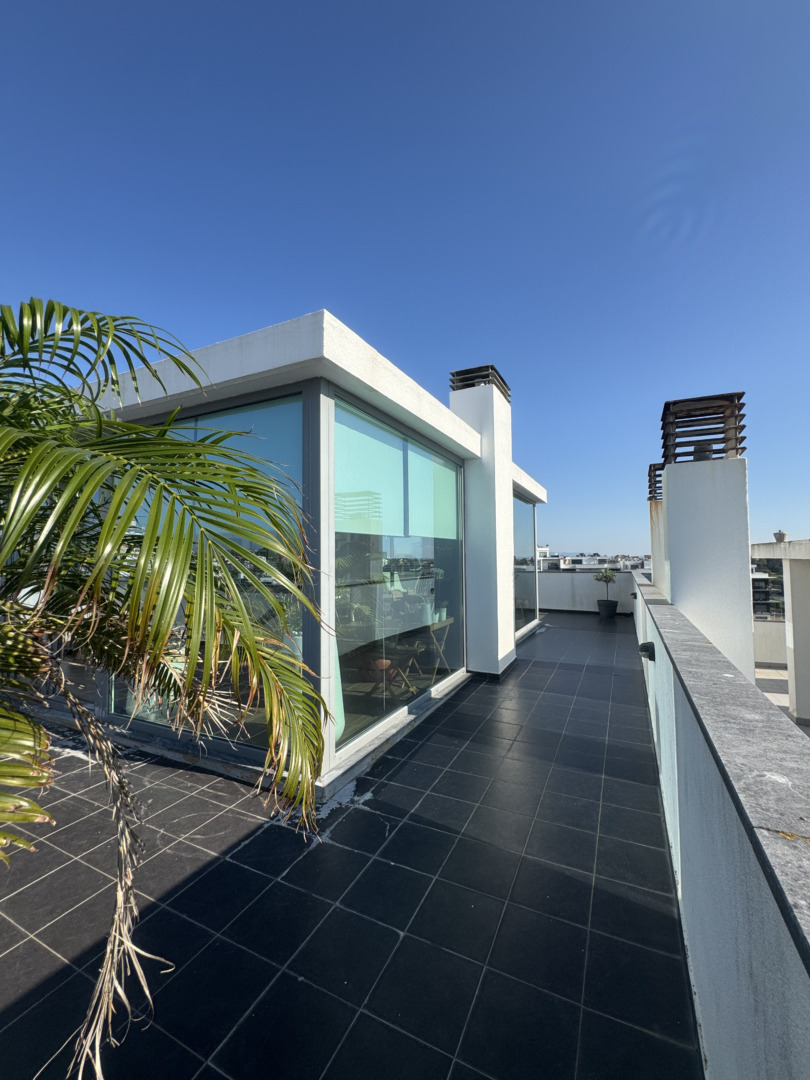
Duplex apartment with sea view 15 minutes from Lisbon
rua Santa Teresa 7Bedroom + duplex apartment with sea view and 15 minutes from Lisbon.
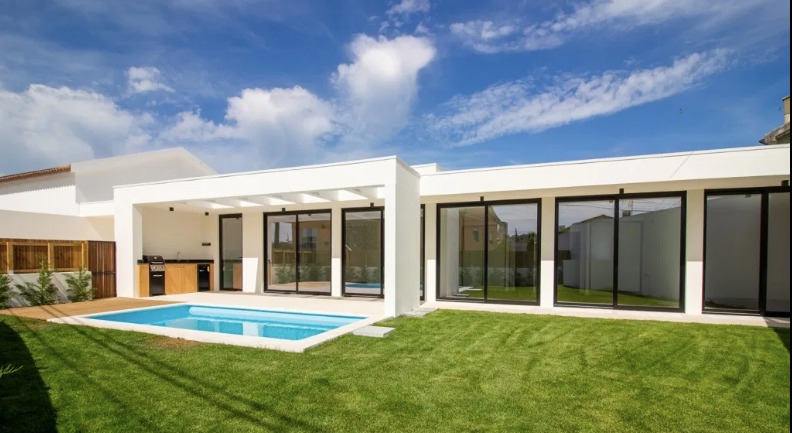
Single-storey house with swimming pool
Just a few meters from the magnificent bay of São Martinho do Porto, lies this…
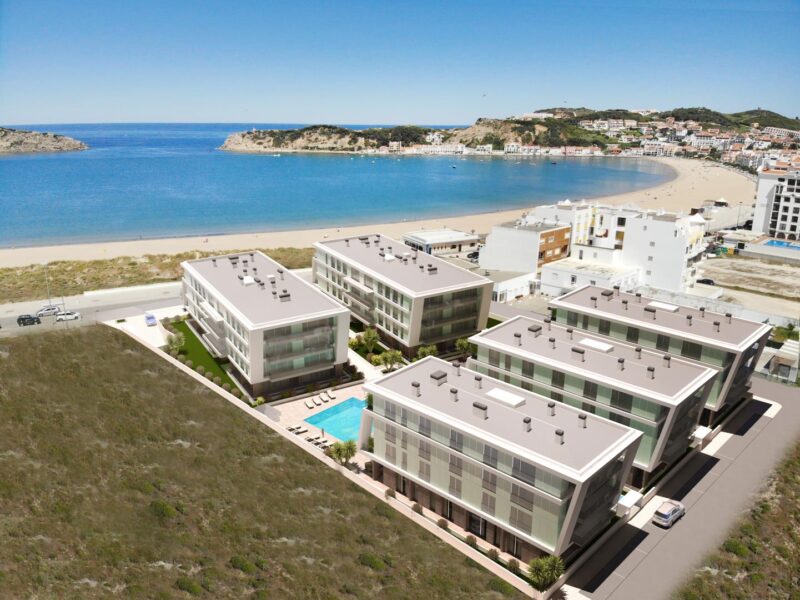
Condominium apartments facing the sea
São Martinho do PortoBeautiful apartments in São Martinho do Porto “Janela da Baía”! Located in the heart of…
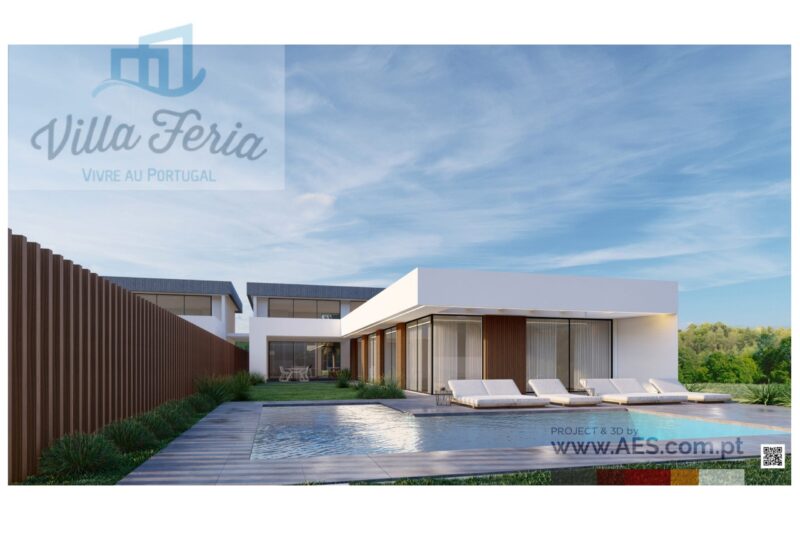
Villa already finished and ready to move in: 4-suite bungalow on 750m2 plot in a quiet area of Azeitão
Rua de ParisHouse already finished and ready to move into! Close to shops and services, quick access…
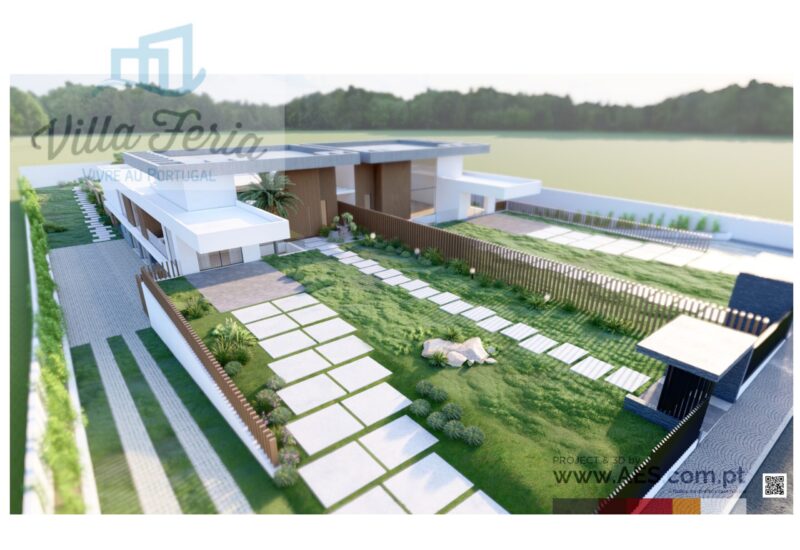
Magnificent house with basement, indoor and outdoor pool in Verdizela/Aroeira
Verdizela/AroeiraNew turnkey project: magnificent single-storey villa, 498m2 in surface area, high-end finishes on a 1875m2…

Luxury apartment on the edge of a nature reserve
Your modern, spacious apartment between the beach and Lisbon’s capital. – Beach 5min – Golf…
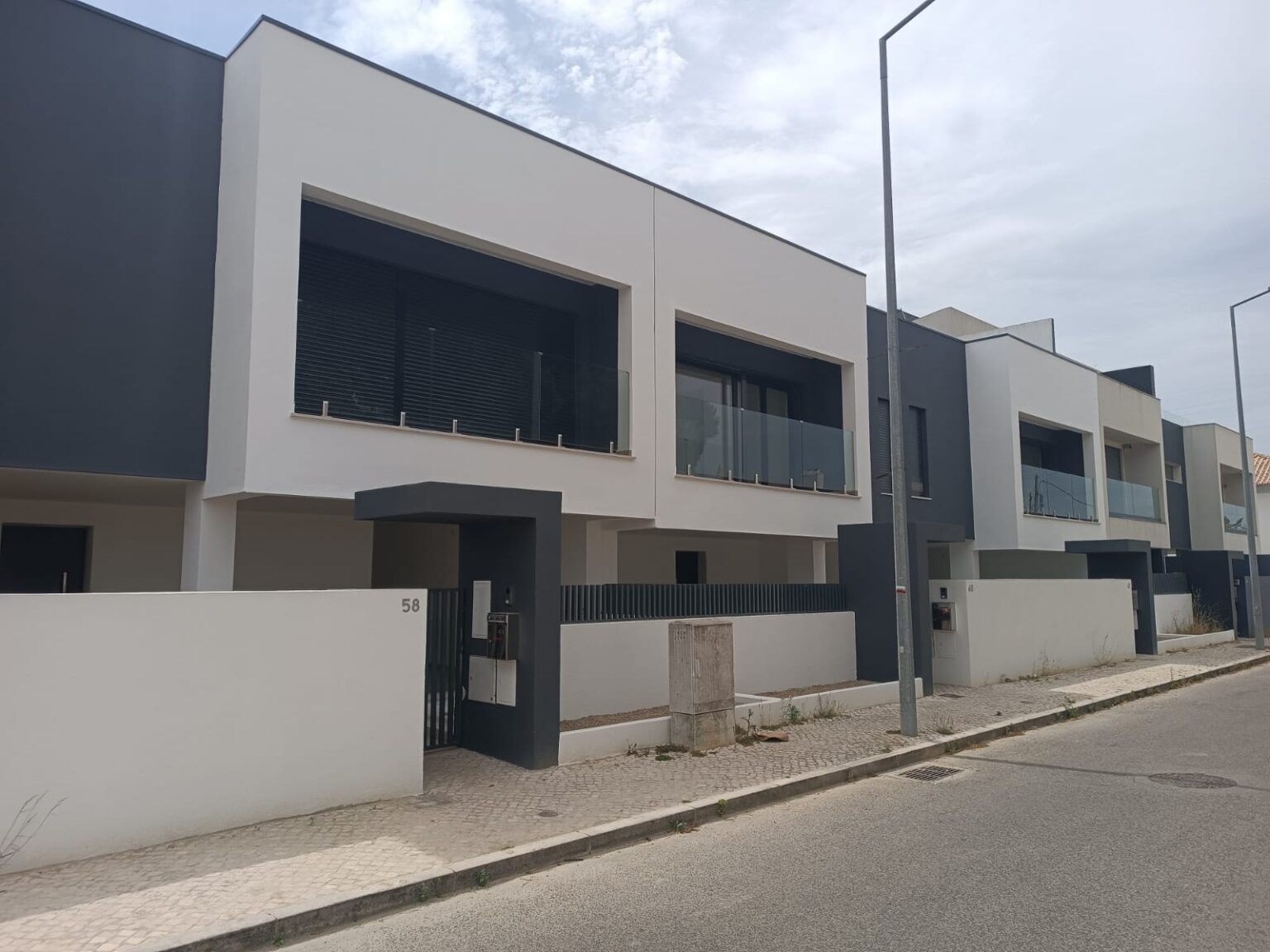
House T3 1 10 min from Lisbon and 5 min from the beaches
PêraREADY TO MOVE IN! New T3 1 ready-to-live-in house in a quiet, rural neighborhood with…

4 bedroom villa with pool and jacuzzi in Aroeira
rua são miguelModern, minimalist architect-designed house with exceptional details in a quiet location in Aroeira 2-storey house…
Inscrivez-vous à notre newsletter
Recevez chaque mois les derniers articles de notre blog "la vie au Portugal" et notre sélection de biens immobiliers à vendre.






